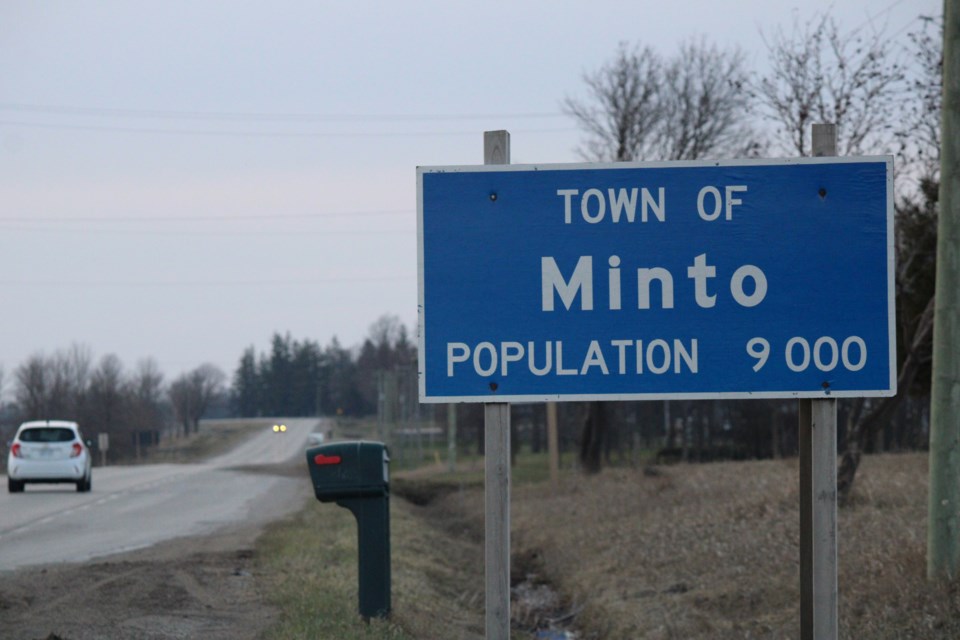MINTO ‒ Proposed provincial planning policies will allow the township to combat the affordable housing crisis while preserving its rural charm, Minto was told by its former CAO Tuesday.
Delegating on the province putting a "new coat of paint" on their planning policies, retired CAO Bill White, now an engineering consultant, asked Minto council to write a letter in support of several of the new provincial changes at a regular council meeting.
“It’s like we put a fresh coat of paint on a house but since then it’s been painted, patched and the colours don’t match anymore … the province has basically scraped all that paint off and is starting anew,” said White. “(But) when you do that to a house, there’s always going to be flaws that you find…but it’s definitely a house that needed to be scraped back and painted again.”
According to White, one of the new provincial changes will allow the municipality to be “more responsive to the market,” and help “provide more housing.”
While Minto has been working towards pursuing this “level of action” over the last 10 years, they’ve been “hampered by some very restrictive things that were in those many coats of paint.”
“I think the County of Wellington is certainly well positioned with its current policies to allow for some residential development in prime agricultural lands with some conditions,” said White. “But only where it can meet the minimum distance separations and some other information and requirements that are already in place.”
The province currently intends for the best lands to be protected, especially crop areas while “lower land-capable soils” may be subject to “more flexible” policies.
“I think (the province) recognizes that you’re not going to get all your needed housing in rural areas,” said White. “But I think (the changes) are recognizing that there has to be a contribution.”
The hypothetical housing would largely occur in “rural clusters in communities.”
“I think when you’re building upon these clusters and making them bigger with new lot creation, as long as…you’re not ruining rural infrastructure, I think that’s a place to start with it,” said White. “I just wouldn’t want to see new subdivisions popping up in every piece of secondary agricultural land…because I think there has to be some attempt to mold it into the community.”
However, Mayor David Turton questioned how these changes would guarantee affordable housing when the definition varies across the county.
“The market has been so limited and the demand so high that the prices have outstripped the ability of people with good jobs to even think about buying a house,” said White. “This slowdown may not be enough to bring the market down to where it’s more affordable for even people with moderate incomes.”
Coun. Ron Elliott suggested that Minto looks at prioritizing all-inclusive rental communities as a way to promote more attainable housing.
“I certainly think so. Wellington and Minto have led the way on that kind of housing,” said White. “I stand corrected, but to me, it seems like that’s the only kind of rental housing that we’re building right now.”
But Deputy Mayor Jean Anderson didn’t believe there was enough in the update to make building in the county compelling to developers.
“We’re being told by the province that if we don’t agree they could step in (and let developers) use agricultural land to build homes but there’s nothing saying these units are going to be affordable,” said Anderson. “What I suspect they’ll be building is large luxury homes for the people from Toronto who can sell their old building and come up here (with money to spare.)”
But while he understood her point, White maintained that the planning updates focus on intensification and using currently under-utilized properties, in addition to adding more attainable housing and homelessness policies.
“The hope is that if you reduce development charges…and you increase the housing supply that the market could build more affordable homes,” said White. “I’m not saying this is going to be the only solution but it’s an important solution…something had to be done at least on the planning side of things to address supply issues and decrease the upfront cost to developers.”
Council has until June 5 to submit their comments to the province.
Isabel Buckmaster is the Local Journalism Initiative reporter for GuelphToday. LJI is a federally-funded program.



